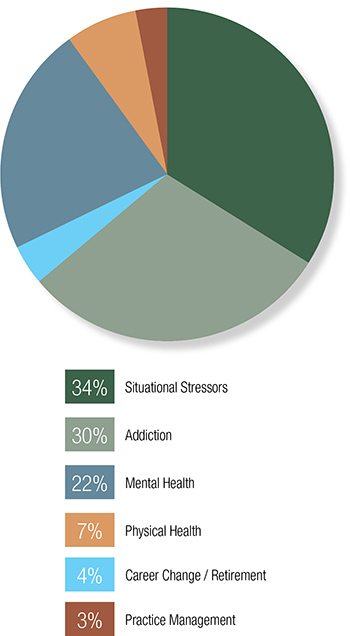 A recent study by the American Bar Association and the Hazelden Betty Ford Foundation confirms what many in our profession have long suspected: lawyers suffer from mental health and substance use issues at a higher rate than the general population and other professionals.
A recent study by the American Bar Association and the Hazelden Betty Ford Foundation confirms what many in our profession have long suspected: lawyers suffer from mental health and substance use issues at a higher rate than the general population and other professionals.
Nearly 13,000 attorneys in 19 states completed screening instruments for problematic alcohol use, depression, anxiety, and stress. One in five scored at a level consistent with problematic drinking; when looking at attorneys under age thirty or in practice ten years or less the rate rose to one in three. One in three scored at a level suggesting depression, and one in five scored consistent with stress and anxiety.
As with alcohol use, younger and newly admitted lawyers had higher rates of depression, stress, and anxiety. In addition, higher scores on the alcohol use scale correlated with higher scores on the depression and anxiety scale.
Unfortunately, many legal professionals don’t seek help for mental health or substance use issues. The fear of exposure due to the stigma surrounding these issues and concerns regarding confidentiality were the two most common factors cited by study participants. This is where the Judges and Lawyers Assistance Program (JLAP) can help.
Any contact with JLAP is strictly confidential under Admission and Discipline Rule 31 and Professional Conduct Rule 8.3. Although JLAP is a Supreme Court agency, their office is located in a separate building to further protect confidentiality. They provide information, referrals, and individual and group support at no charge for judges, lawyers, law students, and bar applicants.
Some common misconceptions about JLAP are that they work exclusively with substance use issues or that they only work with lawyers who are in disciplinary trouble. The vast majority of people come to JLAP voluntarily, either through self-referral or through encouragement from a concerned friend or colleague.
In addition to mental health and substance use, they work with a full range of issues, from daily stress to career change and retirement (see chart for the areas of support provided in 2015). The earlier someone can reach out and get help, the more JLAP can do to help their career and relationships.
The actual research is – Patrick R. Krill, Ryan Johnson & Linda Albert, The Prevalence of Substance Use and Other Mental Health Concerns Among American Attorneys, 10 J. Addict. Med. 46 (2016). The manuscript is available online.